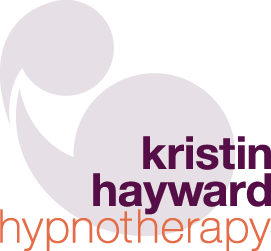05 Feb It’s OK not to breastfeed!
It’s interesting, in these woke times of greater acceptance, recognition of diversity and awareness of individual needs, that there is still stigma around breastfeeding. Opinion has swung from strong disapproval of a mother breastfeeding in public to now equally strong disapproval of a mother who doesn’t breastfeed her baby.
The active encouragement and subsequent trend to breastfeed is fairly recent. It wasn’t that long ago when breastfeeding was frowned on, it was not something that a ‘modern’ mother would do as she was busy working and she was perhaps also proud to be using the latest gadgets and products that could supposedly replace breastfeeding. Not enough was known about the benefits of mothers bespoke milk for her baby or how breastfeeding promoted bonding between mother and baby.
More recently the benefits of breastfeeding for a new baby have been researched and rediscovered. Opinion changes quickly, people jump on the bandwagon and the belief that ‘breast is best’ is undoubtedly correct. However there is the risk that too many people have adopted this belief without taking any time to consider why some mothers don’t breastfeed. This means there is harsh judgment of mothers who don’t ‘nurture’ their babies in the same way and no understanding of why a mother may choose or not be able to breastfeed her baby whether for medical, cultural, low body image, a lack of support or for other reasons.
Who are the people offering their opinions so freely? Is it the generation of new mums who feel that they’ve breastfed successfully so their peers should also be able to do so? Or is it the older generation who bottlefed their babies and have never explored or known about the benefits of breastfeeding.
The huge movement to encourage women to breastfeed, to promote the benefits of breastfeeding has been very successful over the past years. This has resulted in a whole generation of young women who are more aware than ever before of ‘natural’ resources, materials, foods and a strong desire to protect their baby from anything manmade or possibly toxic.
It’s very easy to judge others from this position of righteousness, now that it has become the norm and sadly it’s also very easy to judge rather than to learn and understand why other mums may need to or choose not to breastfeed their own baby.
Expert advice and wonderful breastfeeding support is now available to new mothers and babies who find breastfeeding difficult so perhaps there is less patience with a mother who has ‘given up’ and resorted to bottles.
Your baby’s wellbeing is paramount and as long as you know that you are doing your best for your baby then that’s all that matters. If you find breastfeeding difficult then it’s important to speak to lactation consultants and specialist midwives who can support and advise you. There may be a physical reason, such as tongue tie, why your baby can’t latch on. Perhaps the milk flow is reduced
which can be caused by many different reasons, from stress to diet to hormonal changes to fatigue. Perhaps you simply don’t feel comfortable in which case see if you can still give it a go with some help. Think out of the box – there is a lot of support and even hypnotherapy can change milk production, reduce anxiety and reframe how you feel. Once you have all the information and support options you can make the best choice for you and your baby. Don’t listen to ‘judgements’ from others, they may have breastfed but each baby and situation is different and they don’t know what’s best for you!
The colostrum that is produced in the first few hours and days after birth is what is most important so even if a mother only chooses to feed for a short time her baby will still benefit. And if her baby doesn’t get colostrum but is loved, fed and nurtured in so many other ways then that’s just as beneficial too.
It’s wonderful that the benefits of breastfeeding are promoted in World Breastfeeding Week and that women are encouraged to feel confident breastfeeding their baby for as long as it feels right to them. However, it is also important to accept and respect that every mother and every baby are different. Sometimes, for reasons unknown to others, it’s difficult for either mother or baby. Who are we to judge a mother’s choices or hidden circumstances? The only thing that matters is that both mother and baby are well, healthy and happy, confident in their choice and able to receive expert support if needed. What’s vital is that a new mum feels supported and fully confident in her choice so that she’s relaxed and happy – this positive emotional impact will have the biggest impact on her baby!
